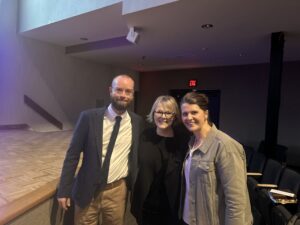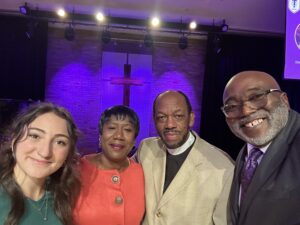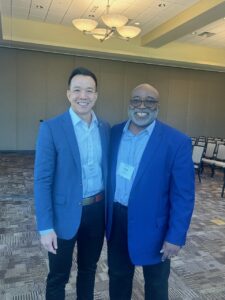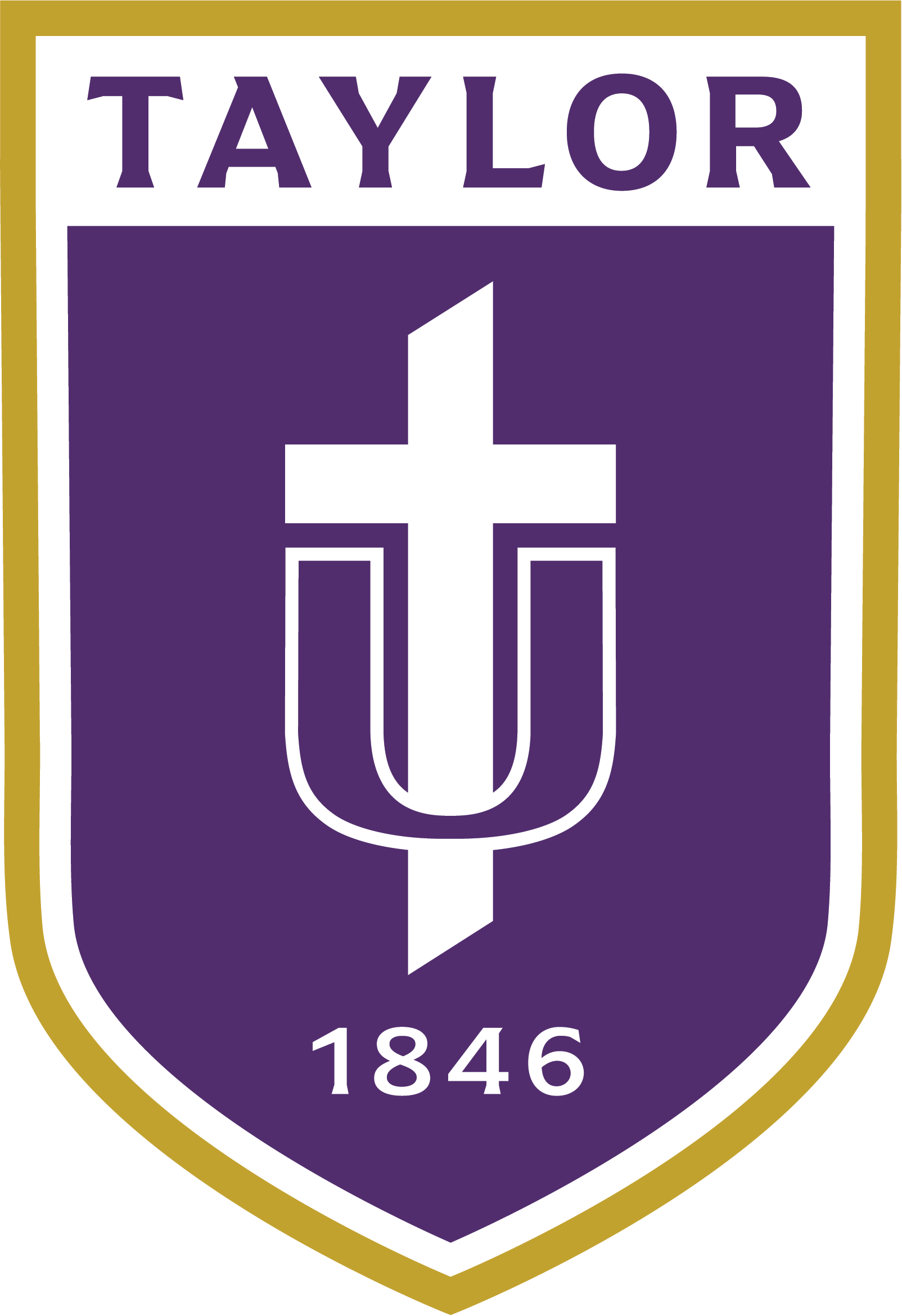By Nate Chu, Director of International Student Programs
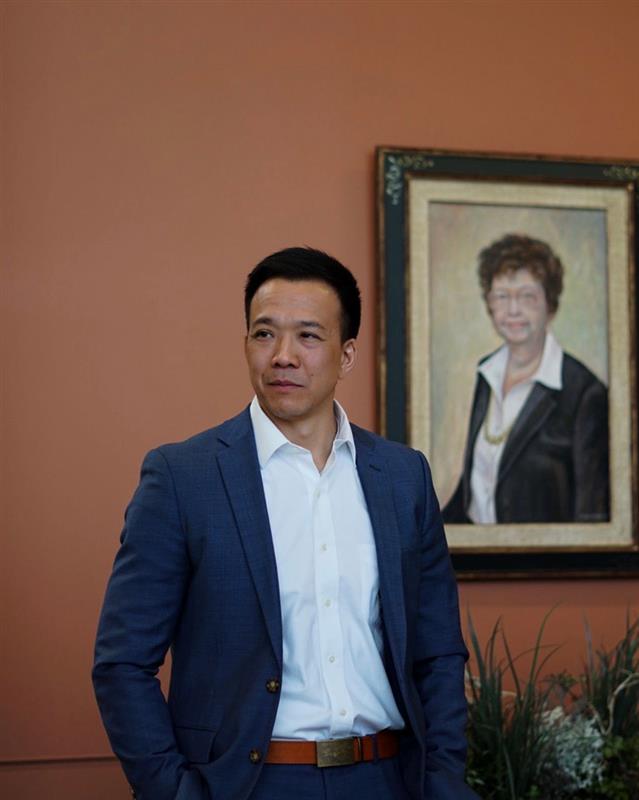
A month ago, I had the privilege to speak to a group of around 60 Asian students from Taylor University and Indiana Wesleyan University at the inaugural Asian Gala hosted by TU’s ASIA organization. This evening of food, fellowship, and conversations on our own Asian identity kicked off a month of celebrating Asian Heritage Month at Taylor, culminating in an Asian Street Market experience for our student body. The following is the transcript from that evening:
“Good evening! I want to thank Enoch, Amy and the rest of ASIA cabinet for hosting this gala tonight where we can celebrate the beautiful diversity of Asia together. I would also like to recognize and introduce my brilliant wife, Ashley, who serves at Taylor as the University Archivist in addition to a variety of leadership capacities, and my lovely twin daughters, Esther and Nora. As a Taylor student twenty years ago, I could only dream of a time when I could look at a room of Asians sharing a meal in the middle of the cornfields of Indiana. For many of our cultures, food is a love language that creates community and shapes our stories of home and traditions. The act of breaking bread together is for more than just the physical nourishment of our bodies; it feeds our very innermost being. And my soul has been fed tonight.
I am so honored to have the opportunity to speak with you tonight about identity and what it means for me to be Asian. Much of what I will talk about is my own stories and experiences growing up and the continued struggles and formation of my Asian identity…while these are unique to me, I hope that there are aspects that you resonate with as you too seek to understand and know your identity.
I am proud to be Chinese.
But I haven’t always felt this way. My parents are Chinese, born and raised in Hong Kong (where most of my extended family still reside today)…they came to the States for their graduate studies in the late 70s and earlier 80s, where my brother and I were born. I spent the first year or so of my life in Southern California before my parents moved to Kenya as missionaries. This was home for me and my siblings, where we spent our childhood running barefoot in the mud in the highlands of Kenya. My first recollection that I was different came when I was around 3 or 4 years old…sitting on a wooden pew at church while my dad preached, and feeling little hands reach out and stroke the smooth, straight hairs on the back of my head…these curious hands made me realize that I was different than most around me. From then on, the cries of “Mzungu” (white man) or “Bruce Lee” further reinforced that I was different.
When my brother and I (we are twins) turned 8, we started 3rd grade at a nearby boarding school. This British school was around an hour away from home and had very strict rules about when we were allowed to go home and even regulating when parents could come to visit. So it was three weeks after we started school that my parents were able to visit for the weekend during the sanctioned “Viso” day. On this Saturday, parents would gather with their students and settle in together around one of the sports field, often grilling lunch or bringing some sort of picnic. As kids, my friends and I would wander from family to family, sampling the food that each parent brought. We would grab a sandwich from one parent, a juice box from another, some chips or candy, maybe a hotdog or two…just laughing and playing…until we arrived at my parent’s location, where they were grilling an octopus. I have no idea how they were able to find an octopus in the highlands of Kenya, but I remember clearly being so embarrassed by the sight and smell because it was different because I was Chinese.
For the first few years at my boarding school, my siblings and I were the only East Asians there, whether students or faculty. In 6th grade, Kenya and Shinya, two Japanese brothers, enrolled. Kenya was in 5th grade and Shinya was in 4th. As a 11-12 year old, I really didn’t think much about it, at that point I was
already deeply embedded into my community…having a strong group of friends, doing well academically, stepping into student leadership roles with both athletic and social opportunities that the school had to offer. Like I said, I didn’t give it much thought until I found Kenya, especially, following my brother and me around more and more. At first I found it mildly amusing, but it got to the point where I became annoyed by it. It wasn’t until I was able to have a conversation with my mom where she told me that he looked up to us, and without even having to say it, representation is important.
Confession time…I am a big nerd, I love comic books, anime, and superhero movies. I am a big fan of the Marvel Cinematic Universe. But it wasn’t until 2021 when Chinese-Canadian actor, Simu Liu, starred as Shang Chi in Shang Chi and the Legend of the Ten Rings, 24 movies and 13 years after the release of Iron man in 2008, which started the blockbuster franchise. On the shelf in my office sits this, for those that can’t see it, this is a figurine of Shang Chi. I don’t collect Funko Pops, but when I saw this while out at Target with my family one day, I knew that I had to get it. This acts as a physical reminder to me about the importance of representation. Representation allows us to imagine ourselves belonging.
Growing up, we would regularly return to Hong Kong to visit family and churches. These trips were a homecoming of sorts for my parents…but I never felt the same way. Although I look like my cousins, I did not fit in, I did not belong. Cantonese is a very tonal language, where the slightest inflection would completely change the meaning of what you just said. Many comments about my inability to articulate the correct tones were made to me and my parents, “Why can’t he speak Cantonese properly?” “He has such an accent.” These barbs left a mark on me as I now realize that I made the subconscious decision to not speak Cantonese as much at home, even with my parents. I regret that, I wish I was more than just conversationally fluent in my mother tongue, if nothing else, but to be able to better communicate with my parents today. Hong Kong was my parents’ home; it was never mine.
I have wonderful parents that I love dearly. They, as I mentioned earlier, served as Missionaries to Kenya for over twenty years and then another almost twenty more in North Africa until this past year. They are fluent in Cantonese, Mandarin, English, and Swahili, and conversational in Arabic. But growing up, I remember being ashamed of my parents when they would interact with my friends or teachers at school, because their English wasn’t perfect and they speak with a slight Chinese accent. As a child and teenager there was nothing more that I wanted than to fit in, to have a ‘normal’ family, and my parents English abilities was, in my mind, what was holding us back.
Side note: for those of you who are in Rev. Dyson and my Conversations on Race class this semester, I am so excited for next week’s class as my parents will be our guest speakers!
As Chinese parents, my mom and dad placed an incredibly high emphasis on our education, always making sure that we were working hard and taking our studies seriously. Although they never actually said, “You’re Asians, not Bsians,” there was always a sense that I had to excel in the classroom. I remember graduating from Taylor in the spring of 2005, and as the commencement ceremony ended and I met up with my parents, my dad turns to me and said, “So when are you starting your graduate studies.” This was the expectation. But as much of an emphasis they put on my academic pursuits, they placed an even bigger one on my Christian walk, for which I am eternally grateful.
To this day, my parents are my spiritual role models…they were the ones that instilled my faith, helped me develop in my relationship with Christ as a child, sacrificed so that I could attend Christian schools that deepened my desire to grow in the Lord. Something that I have and continue to struggle with is
“what does it mean to be a Christian-Chinese”? My parents come from very traditional Chinese views and values, often their theology is derived from this perspective and understanding…and it was from this that they raise me. However, having attended predominately white Christian schools most of my life and the majority of the mentors I had were white, much of my faith perspective has been shaped by the Evangelical American Church. What this has meant for me is that there has been tension due to bible translations and interpretation of scripture. I was taught that my identity is in Christ, but many times that would be it, there was no further conversation about my other identities, my cultural identity, my Asian identity.
One of my favorite verses is Revelations 7:9, which many of you are familiar with, “After this I looked, and there before me was a great multitude that no one could count, from every nation, tribe, people and language, standing before the throne and before the Lamb.” This verse paints a beautiful picture of what heaven will be like, the tapestry of diversity. But too often we stop there, we take this verse and say that this is the picture of diversity, so we need to mirror this now to bring the kingdom of heaven to earth. But we forget to continue reading in verse 10, “And they cried out in a loud voice: “Salvation belongs to our God, who sits on the throne, and to the Lamb.”” Verse 12 continues on “saying: “Amen! Praise and glory and wisdom and thanks and honor and power and strength be to God for ever and ever. Amen!”” Not only will heaven be represented by all nation, tribe, people and language, but we will be worshipping the Lord together for eternity…this is what biblical diversity is about…all of God’s people, you and me, worshipping the Lord.
One of my favorite, if not absolute favorite, thing about serving at Taylor is the students…you! And what I truly appreciate is how you interact with my daughters, often without even knowing the impact you are having on them. Being a parent is hard. Being a dad of girls is harder. Being a parent of half-Chinese, half-white daughters in rural East-Central Indiana is such an incredible challenge when it comes to helping them understand their own cultural identifies. Because it is no longer just my own Asian identity that I need to contend with, but also that of Esther and Nora’s. It was you that taught them how to use chopsticks during the Lunar New Year Celebration…thank you Joy Fu and Dawn Zhang. But more important than that, just by being here, by being a part of this community, you allow them to see themselves as Asians in college at Taylor. Representation is important.
While my Asian identity is still shaping everyday…and there are days that I wrestle with what it means to be Chinese more than other days…I know that I can stand before you and say that I am proud to be Chinese. Be proud of who you are…be proud of where you are from…be proud of the man and woman that God has called you to be. I look out and see the joys, struggles, and potentials as an Asian in your face…and am proud. Some of you might be further along in your formation of identity than others, or you might feel like you don’t even know where to start. It is okay to struggle and wrestle with your identity, and you will, but know that you do not do it alone. Thank you.”


